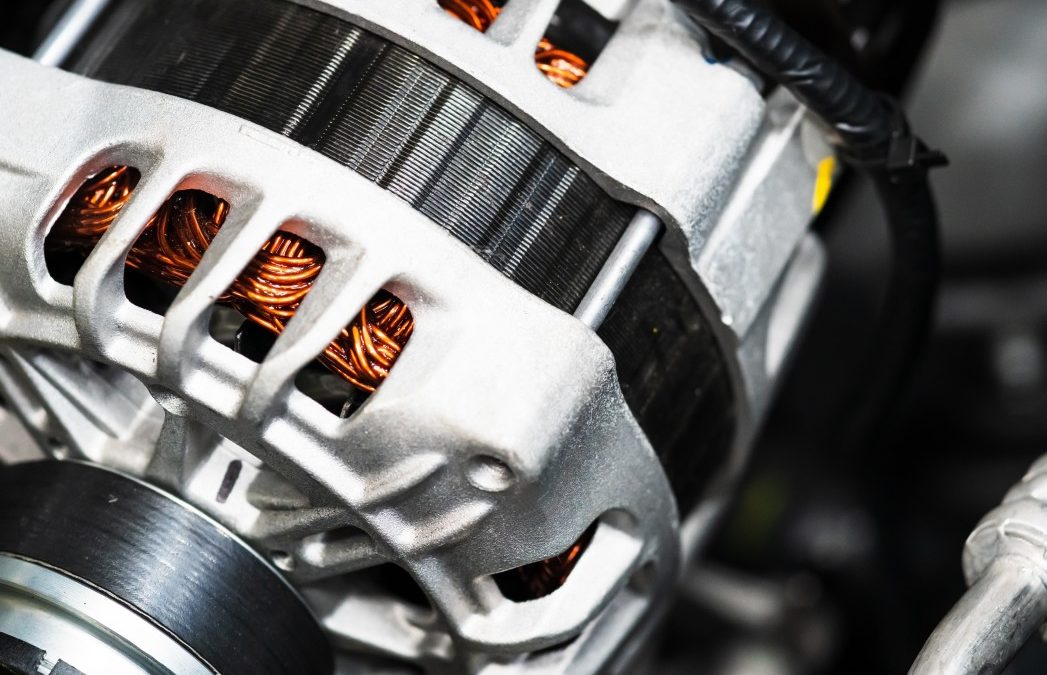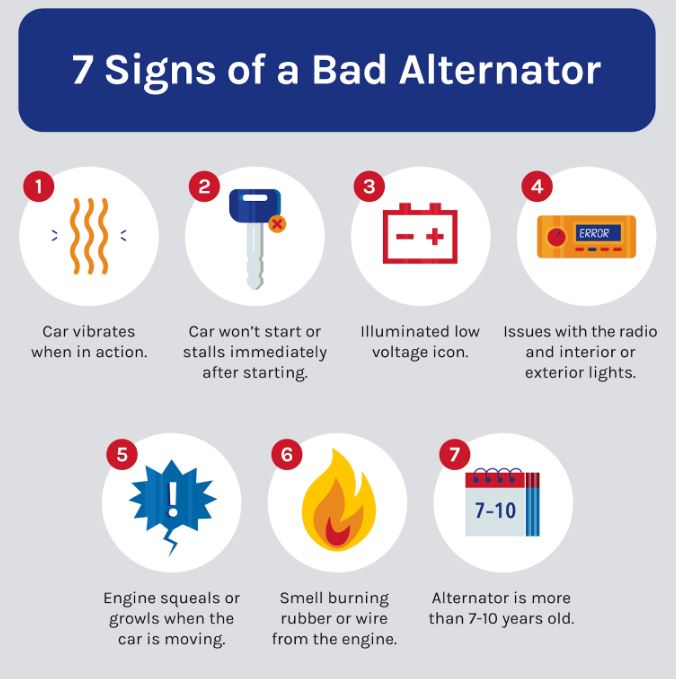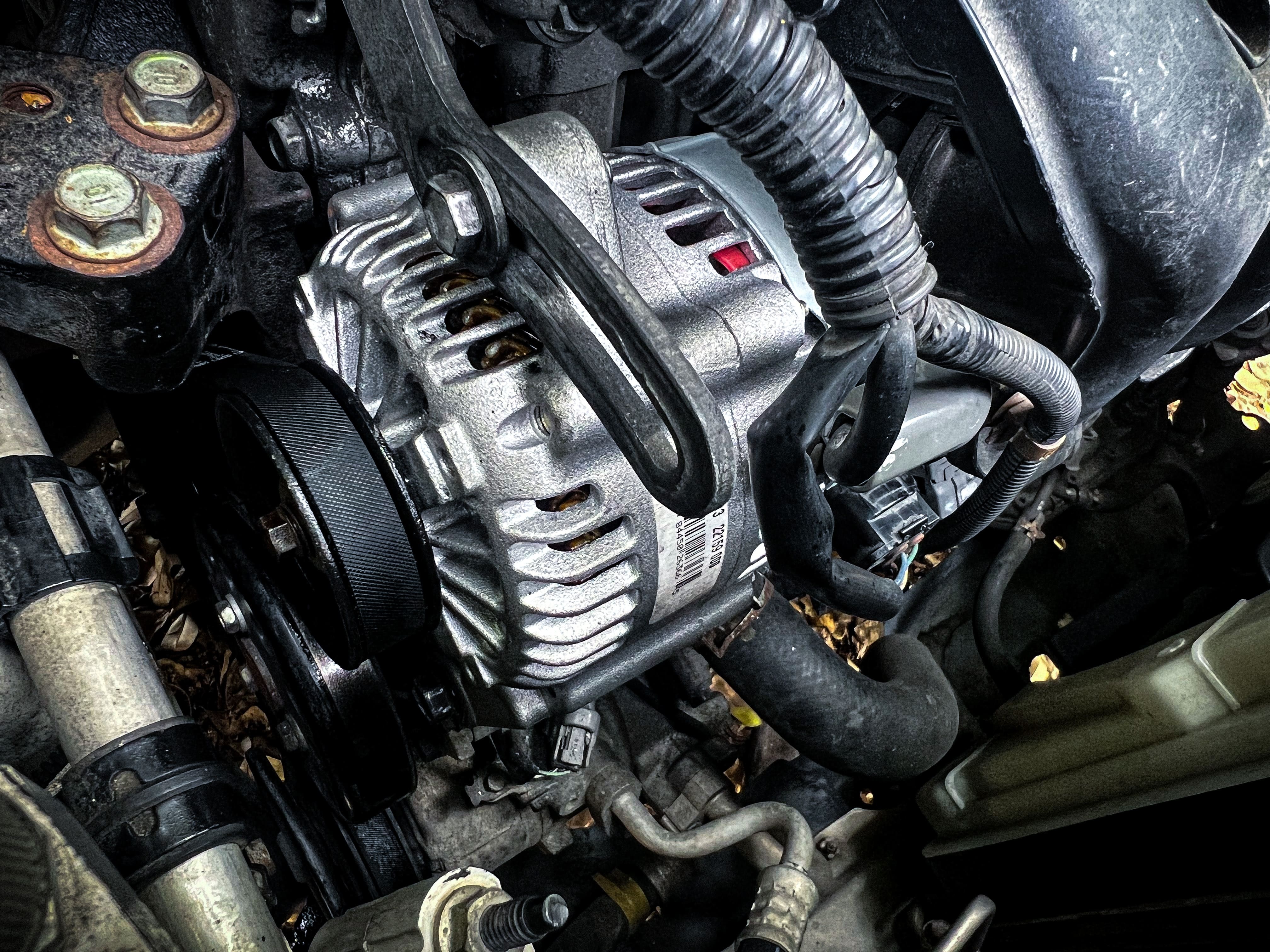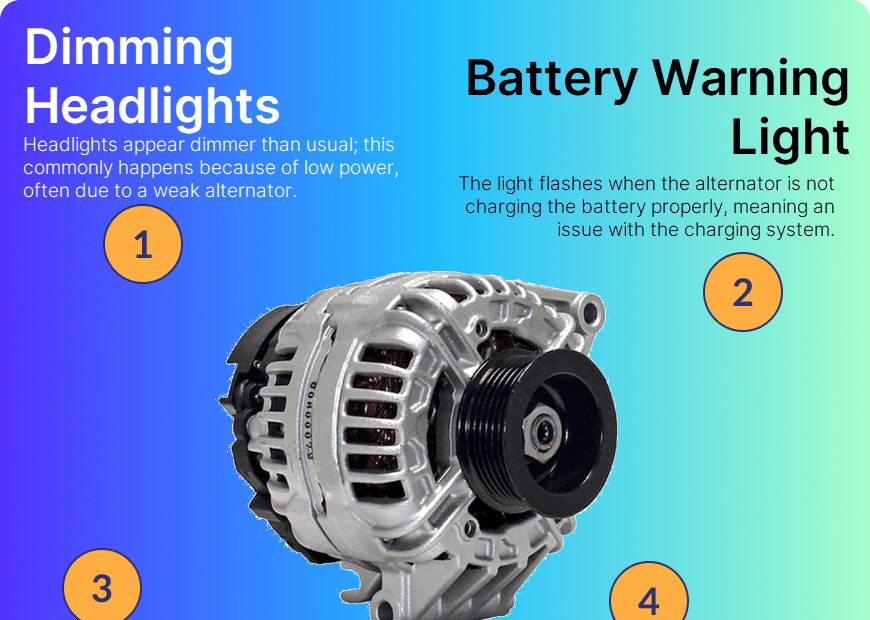A bad alternator can cause electrical issues in a vehicle and lead to a discharged or dead battery. Your vehicle’s alternator plays a crucial role in keeping the electrical system powered and the battery charged.
However, when the alternator is faulty, it can cause a range of electrical problems. These issues can include dimming or flickering lights, a weak or dead battery, difficulty starting the engine, and even stalling while driving. The alternator is responsible for recharging the battery while the vehicle is running, so without a properly functioning alternator, the battery will not be able to maintain its charge.
This can result in a vehicle that won’t start or unreliable performance. If you notice any of these warning signs, it is advisable to have your alternator inspected and replaced if necessary to avoid further problems.
Common Signs Of A Bad Alternator
A car’s alternator plays a crucial role in providing power to the electrical components of the vehicle while the engine is running. However, like any other mechanical part, an alternator can also fail over time or due to various reasons. Identifying the signs of a bad alternator is crucial to avoid unexpected breakdowns and potential damage to your vehicle. In this article, we will highlight some common signs you can look out for to determine if your car’s alternator is malfunctioning. Paying attention to these signs will help you take prompt action and prevent further complications.
Dim Lights
One of the most noticeable signs indicative of a bad alternator is when the lights in your vehicle start to dim, both inside and outside the car. Dimming headlights, interior lights, or dashboard lights can be a clear indication that your alternator is not charging the battery properly. This happens because the alternator is responsible for supplying power to the electric system, including the lights, and when it starts to fail, it cannot generate enough power to keep them shining brightly.
Strange Noises
If you notice unusual noises coming from your car, it could be a sign of a faulty alternator. A bad alternator can create various strange sounds, such as a grinding, squealing, or whining noise. These noises are usually caused by worn-out bearings inside the alternator, indicating that it is struggling to function properly. Ignoring these noises and continuing to drive your car with a bad alternator can lead to further damage and costly repairs, so it’s essential to address the issue immediately.
Dashboard Warning Lights
Dashboard warning lights are designed to alert you to potential problems in your vehicle’s systems. One of the most common warning lights that can indicate a bad alternator is the battery light. When your alternator is failing, the battery light on your dashboard may light up, signaling that the battery is not receiving sufficient charge. Additionally, other warning lights related to the electrical system, such as the ABS or the check engine light, may also come on. It is crucial not to ignore these warning lights and have your vehicle inspected by a professional to diagnose and resolve the issue.
In conclusion, being aware of the common signs of a bad alternator can help you identify and address the problem before it escalates. Dim lights, strange noises, and dashboard warning lights are all indicators that your vehicle’s alternator may be failing. If you notice any of these signs, it is essential to consult a qualified mechanic who can diagnose and fix the issue promptly. Taking immediate action will not only prevent further damage to your vehicle but also ensure your safety on the road.

Credit: cdspros.com
Effects Of A Bad Alternator
A bad alternator can cause dimming lights, a dead battery, and trouble starting your vehicle. It may lead to stalling or electrical system malfunctions. If ignored, it can leave you stranded and in need of immediate repairs.
When a vehicle’s alternator is not functioning properly, it can have a significant impact on various systems and components. Two of the most notable effects of a bad alternator are battery draining and electrical failures.
Battery Draining
A bad alternator can cause your vehicle’s battery to drain quickly. This occurs because the alternator is responsible for recharging the battery while the engine is running. Without a functioning alternator, the battery will not receive the necessary charge to keep it fully charged. As a result, you may find yourself frequently needing to jump-start your vehicle or experiencing difficulty starting the engine altogether.
In addition to starting problems, a drained battery can also lead to issues with other electrical components in your vehicle. For instance, you may notice dim headlights or a weak electrical system when operating power windows, locks, or the radio. Without a sufficient charge, the battery cannot sustain the power needed to operate these components effectively.
Electrical Failures
A bad alternator can also result in various electrical failures within your vehicle. The alternator provides power not only to the battery but also to other crucial electrical components, such as the ignition system and the fuel injection system. When the alternator is malfunctioning, these systems may experience intermittent power supply or complete failure.
Additionally, a bad alternator can cause voltage fluctuations throughout the electrical system. These fluctuations can damage sensitive electronic components, such as the engine control module (ECM) or the radio. As a result, you may start to notice issues with engine performance, including rough idling or difficulty maintaining a consistent speed.
To sum up, a bad alternator can have several detrimental effects on your vehicle’s performance. From battery draining to electrical failures, it is crucial to address any alternator issues promptly to avoid more significant problems down the road.
Solutions For A Bad Alternator
When faced with a bad alternator, it’s crucial to know the necessary solutions to avoid further vehicle complications. Here are some effective remedies to address a bad alternator:
Replacing The Alternator
To resolve a bad alternator, the most straightforward solution is to have it replaced with a new or remanufactured one. While this may seem daunting, hiring a professional mechanic for this task is the optimal choice for ensuring the job is done accurately and efficiently.
Checking The Drive Belt
Another troubleshooting step for a bad alternator is to inspect the drive belt. A loose or damaged belt can hinder the alternator’s functionality, so tightening or replacing it as needed is crucial to ensure the proper operation of the alternator.

Credit: www.aaa.com

Credit: shop.advanceautoparts.com
Frequently Asked Questions For What Does A Bad Alternator Do
What Are The Symptoms Of A Bad Alternator?
Symptoms of a bad alternator include dim or flickering lights, strange noises, weak battery, and dashboard warning lights.
How Does A Car Act With A Bad Alternator?
A car with a bad alternator may have trouble starting, dim or flickering lights, and difficulty powering electronics. The engine might also stall or make strange noises. Regular vehicle check-ups are essential to catch alternator issues early.
How Do I Know If I Need To Replace My Alternator?
Signs that indicate you need to replace your alternator are dimmed headlights, a dead battery, unusual noises, dashboard warning lights, and difficulty starting the car. Contact a mechanic if you experience any of these issues.
What Usually Fails In An Alternator?
The common failures in an alternator include worn-out brushes, damaged diodes, faulty voltage regulator, loose or broken connections, and a worn-out or defective rotor or stator.
Conclusion
Understanding the signs of a bad alternator is crucial for maintaining your vehicle’s performance. By recognizing the symptoms early, you can avoid unexpected breakdowns and costly repairs. Stay vigilant for dimming lights, strange smells, and unusual sounds, and address any issues promptly to ensure the smooth operation of your car.
